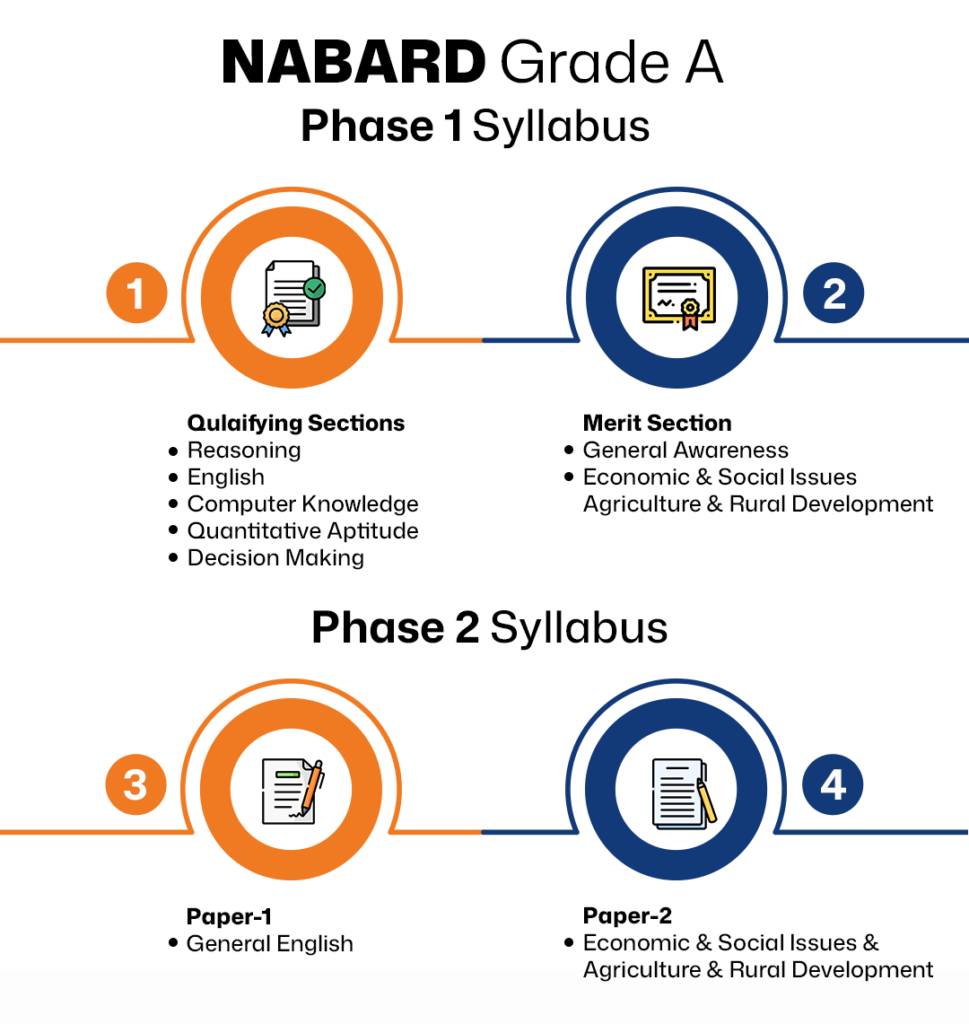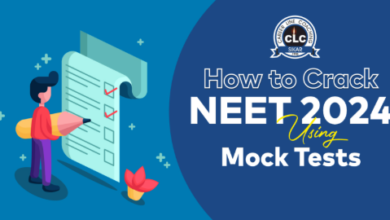What is the best strategy to clear the NABARD Grade A exam?

This is the most common question I encounter regarding the preparation for any syllabus of any exam, and the same is true for the NABARD Grade A syllabus. Whenever you are preparing for any competitive exam, you will need the best strategy to prepare and clear the exam, especially for a prestigious exam like the NABARD Grade A.
I know you are all here because you are interested in the agricultural, rural development, and financial sectors. And the NABARD Grade A exam is all about that, but in its unique way. The NABARD Grade A syllabus is the first thing any of you, even thinking of preparing for the NABARD Grade A exam, will come to look for. The syllabus will become your guide to success if you understand it properly, and will help you clear the NABARD Grade A 2025.
In this article, we will discuss how starting your preparation early is a smart decision, along with the best preparation strategy to clear the NABARD Grade A 2025 exam, and much more. Let’s begin.
Understand the NABARD Grade A Syllabus Thoroughly
So, you remember how I earlier said that the NABARD Grade A exam is unique, now you will understand how and why. The NABARD Grade A is conducted in three stages: Prelims, Mains, and Interview.
| NABARD Grade A Phase 1 Syllabus | |
| Subjects | Max. Marks |
| Qualifying Sections | |
| Reasoning | 20 |
| English | 30 |
| Computer Knowledge | 20 |
| Quantitative Aptitude | 20 |
| Decision Making | 10 |
| Merit Section | |
| General Awareness | 20 |
| Economic and Social Issues | 40 |
| Agriculture and Rural Development | 40 |
An important point to remember is that the syllabus for ESI and ARD remains the same for both Phase 1 and Phase 2, so preparing for these once helps you in both stages.
| NABARD Grade A Phase 1 Syllabus | |
| Papers | Marks |
| Paper-1General English | 100 |
| Paper-2Economic and Social Issues & Agriculture and Rural Development | 100 |
If you look closely, the NABARD syllabus puts a heavy weight on Agriculture and Rural Development and Economic and Social Issues. So, you need to spend more time here compared to Quant or Reasoning.

Create a Personalized Study Timetable for NABARD Grade A
Once you know the NABARD Grade A syllabus, make a timetable that suits your daily routine. Don’t try to copy someone else’s plan. Instead, go through the syllabus carefully and minutely, take a couple of quizzes on the NABARD Grade A exam, analyse your result, and then break down the syllabus based on how many hours you can give each day, according to the result you have obtained during the quizzes.
You can dedicate 2 to 3 hours on weekdays and more time on weekends. Make sure you give 30 mins daily to quiz yourself and a full day, let’s say, Sunday, for revision. Try to finish the syllabus of NABARD Grade A in 4 to 6 months and keep the rest of the time for mock tests and fine-tuning your weak areas.
Start with High-Weightage and Familiar Topics in The NABARD Grade A Syllabus
I would highly recommend that you don’t waste time trying to master everything in one go. Begin your preparation with subjects you are already comfortable with; you can identify these if you start your preparation by taking several quizzes to analyze and understand where you stand in your preparation journey. This helps you build momentum and saves time.
At the same time, check the NABARD Grade A previous years question papers to identify topics with the most scoring potential. For example, questions from government schemes, rural infrastructure, financial inclusion, and inflation come regularly in both the ESI and ARD sections.
Focus on ARD and ESI Papers of the NABARD Grade A Exam
You cannot clear the NABARD Grade A unless you score well in ARD and ESI. These two subjects are also the most feared by non-agricultural background students. But the truth is, they are doable with the right resources.
I’ll give you a hack: break ARD into static and current parts. Learn definitions, schemes, and agriculture basics first. For ESI, start with topics like poverty, growth, sustainable development, and social justice.
Best sources include:
- NABARD Annual Report
- Kurukshetra and Yojana magazines
- Ministry websites for government schemes
- Ramesh Singh (for ESI basics)
- ICAR booklets or ARD compilations for agriculture terms
Take as Many Mock Tests and Past Year Question Papers of NABARD Grade A as Possible
Once your basics are in place, take mock tests specifically for NABARD Grade A regularly. This will help you track your speed, accuracy, and understanding of the syllabus, along with your weak areas.
You don’t need to take the test, quizzes, and practice sets just for the sake of taking them; you need to analyze them. Find where you lost marks and improve that topic in the next few days. Keep a test-review notebook if possible.
Solving the NABARD Grade A past year papers also gives you an idea of the kind of questions NABARD prefers.
Revision Strategy That Works When Preparing For NABARD Grade A
Let me tell you something, it is easy to forget what you studied a few weeks ago if you don’t revise regularly. That’s why revision should be part of your weekly plan, not just your last-minute plan.
Make short notes for every NABARD Grade A subject. Write one-liner definitions, schemes with year and ministry, and basic ARD concepts. These notes will help you revise faster before the exam.
Use spaced revision. This means going back to a topic after a few days and again after a week. It improves memory retention.
Final 30-Day Plan Before the NABARD Grade A Exam
In the last month, stop learning new topics. Focus on revising what you’ve already studied. Keep taking mocks every few days and revise your notes daily.
One week before the exam, go over only the most important government schemes, data, and current affairs. Don’t panic if you haven’t covered everything. You don’t need to score 100%, you just need to score more than others.
Keep your mind calm and avoid comparing your progress with anyone else.
Conclusion
Cracking the NABARD Grade A requires a mix of consistency, planning, and smart execution. Understand the NABARD Grade A syllabus well, make your own schedule, and focus on ARD and ESI from the beginning. Use mock tests to stay exam-ready and keep revising your notes regularly.
NABARD Grade A 2025 might still seem far, but if you start now, you’ll be far ahead of the competition. Many students clear this exam each year with dedication and clarity. You can too.





